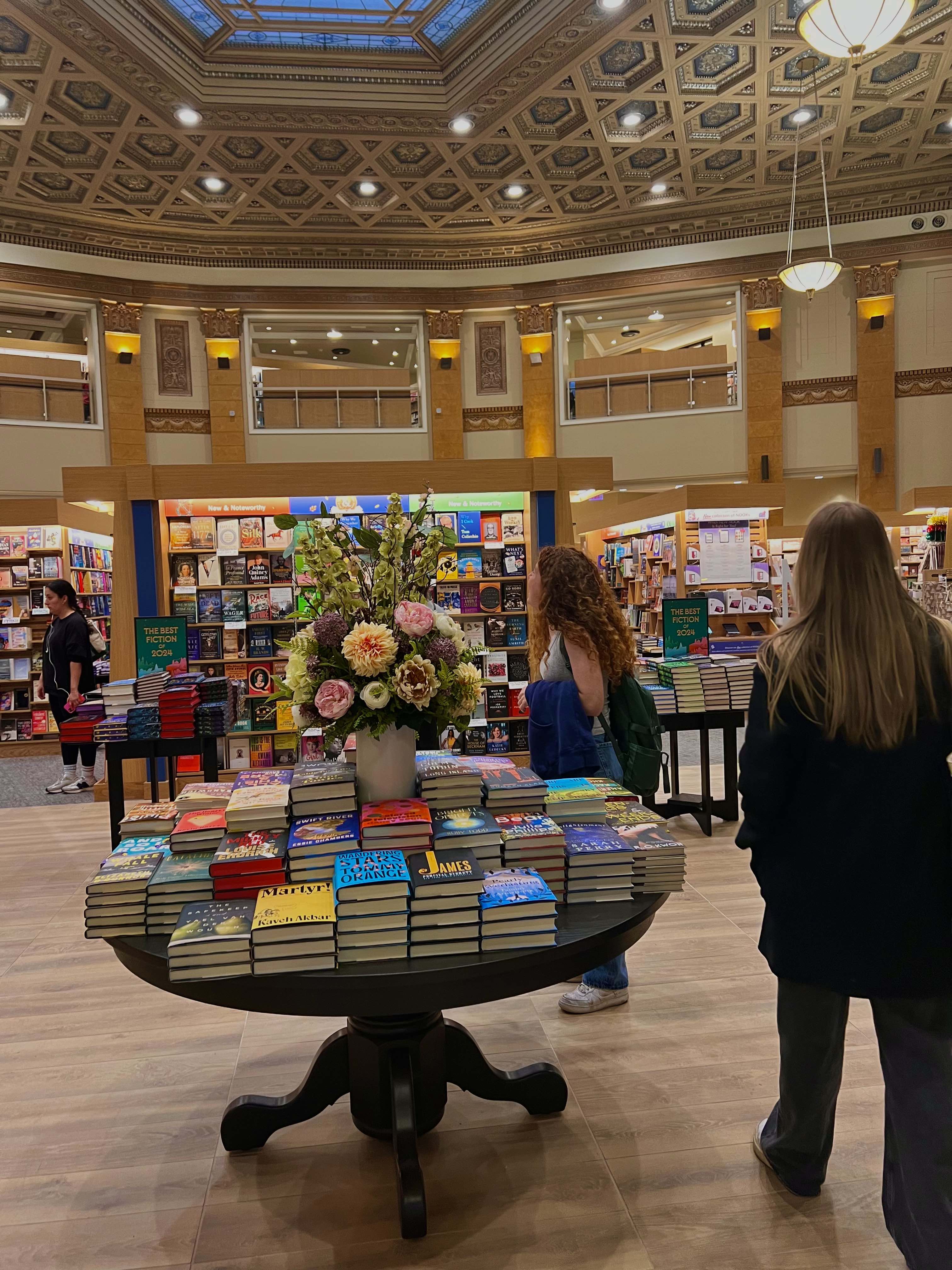By Sylvie Kirsch
Medill Reports
“On weekend mornings, I get up, make coffee, sit on my couch and read a paper book 99% of the time. And that’s a routine that’s so peaceful and amazing.”
This isn’t the sentiment of a retired octogenarian but of 23-year-old Hayley Sanders, owner of the BookTok account @hayleyreadsalot. She’s part of a wave of Gen Z — the first generation raised on the internet — who value reading physical books and love posting about them online.
Since the advent of social media, flagship bookstores like Barnes and Noble have shuttered en masse, and pre-smartphone adults blame it on Gen Z’s refusal to disconnect from the internet. One New York Times article quipped, “They’re talking differently, texting more, wearing the wrong clothes, still texting. Do they ever put down their phones?”
But times, they are a-changin’. When COVID-19 shut down the world, Gen Z turned to reading as one of the only available offline activities. Literature suddenly became their topic du jour, with robust conversations surrounding trendy books such as Donna Tart’s “The Secret History” and Sarah J. Maas’s “A Court of Thorns and Roses” series. Unable to talk about books in person, BookTok — a subcommunity on TikTok — emerged as the go-to digital perch for those looking for recommendations, reviews and discussions. Today, videos with the hashtag “BookTok” have amassed more than 250 billion views.
BookToker Avery Silverberg, 27, created her account @a.very.fast.reader during the pandemic. She wasn’t looking for fame like the typical influencer but instead longed for a community surrounding her beloved hobby.
“I was so craving that connection between book lovers,” Silverberg said. “Like, I was dying for the ability to walk into an office and have all these people who love books like I do. It was because of that feeling I was lacking that I turned to online spaces.”
BookTok also has become a gateway drug for those who haven’t experienced a page-turner in years. While there’s some debate over the merit of BookToker recommendations, it’s undoubtedly created an online movement of reading for enjoyment rather than school. As 23-year-old Lisbeth Rubin, owner of Bookstagram account @libraryoflisbeth, put it, “This is amazing for the younger generation.”
Silverberg agrees. “The ability for BookTok to turn stereotypically nonreaders into readers is the best part of social media,” she said.
While BookTok has fueled this new surge of ardent readers, social media’s influence on the reading ecosystem does not stop there. In a 2022 study by UK-based professional organization Publishers Association that researched how social media is transforming Gen Z reading habits, 59% of participants credited BookTok with helping them discover a passion for reading, and 55% seek out reading recommendations on the subcommunity. Books that have gone viral – those that are “trendy” to read and discuss – now dominate the shelves of libraries and bookstores. For example, Rebecca Yarros’s dragon-romantasy novel “Fourth Wing,” which blew up on BookTok in 2023, has 3,022 holds on the 657 copies circulating in Chicago’s public library system.
“When something goes viral on TikTok, we have an uptick of people coming in and asking for that material,” West Loop library branch manager Kendall Kidder-Goshorn said. She estimates online trends determine 30%–40% of her book orders and prioritizes spending additional funds on those books.
BookTok encourages new and old literature lovers to leave the house and pick up their next story. The subcommunity’s positive influence on book sales is a key component in the rise of new brick-and-mortar bookstores. For example, Barnes and Noble’s 2024 comeback is astounding: the recently-flailing retailer has opened over 55 locations in the last 11 months.

It’s easy for book lovers to get lost in the labyrinth of titles that dominate two floors of Barnes and Noble’s Wicker Park location. (Sylvie Kirsch/MEDILL)
So, why do members of Gen Z, often labeled as internet-addicted zombies who slobber over iPhones while crossing five-way intersections, spend their time, money and effort going to libraries and bookstores when digital books are instantly accessible and often cheaper? The underlying assumption is Gen Z wants to live chronically online, floating in a cloud of Brat memes and ditzy lip-sync videos. But don’t conflate their comfort of blending physical and digital realms with preference.
A 2022 study by Kathi Inman Berens and Rachel Noorda, professors and publishing researchers at Portland State University, reported Millennials and Gen Z read and bought, on average, twice as many print books per month than any other type of book form. This is proof that the demographic is making an active effort to disconnect.
“Constantly checking the phone is just a part of being alive in 2024 and 23 years old,” Rubin said. But “when I have a book in my hand, I’m completely away from the phone experience.”
These communities also are translating offline into real-life connections. When Silverberg moved across the country last year, she said, “I made all my current real-life friends here in New York on Instagram because of our shared interests in books that instantly connected us.”
BookTok’s influence cannot be understated. It’s one of those rare, healthy internet enclaves that promotes edifying hobbies instead of toxic habits. It invites virgin readers to join veteran book lovers in conversation about today’s trendiest works, creating a community far beyond the screen. So next time you find yourself stuck in a deep rut, put down your phone, pick up a book and join in on the conversation.
Sylvie Kirsch is a recent graduate of Medill’s magazine specialization. You can find her on LinkedIn.

